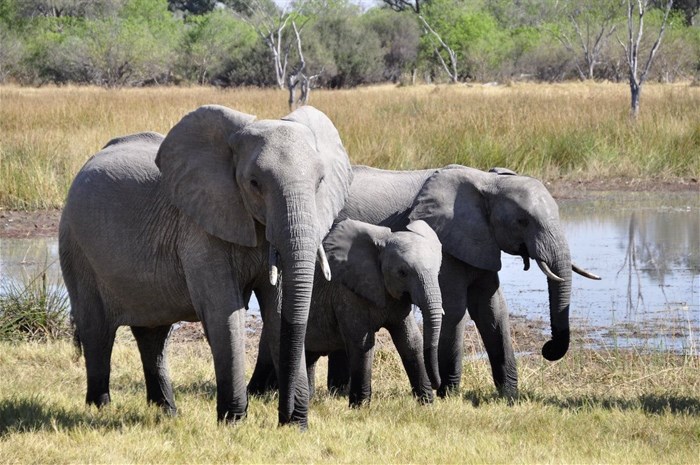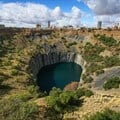Trending
Elections 2024
Creecy publishes key wildlife management and conservation regulations for implementation

The regulations include the Revised Regulations Pertaining to Threatened or Protected Terrestrial Species and Freshwater Species (TOPS Regulations), and the Associated Species; Revised National Norms and Standards for the Management of Elephants in South Africa, and Revised Leopard Norms and Standards.
In a statement on Tuesday, the Department of Forestry, Fisheries and the Environment said the Minister signed off on their publication for implementation because of the extensive work that has gone into their production.
Creecy said these regulations do not give proper effect to the recommendations of the High-Level Panel or the White Paper on Conservation and Sustainable Use of South Africa’s Biodiversity, which is currently in the Cabinet system for approval.
“Last year, prior to finalisation of these regulations, the Minister took advice on these new regulations, in light of the High-Level Panel recommendations and the White Paper Policy process.
“This advice highlighted areas that were inconsistent with the current policy process and also considered the urgency of the revisions, and the value that they would add in the interim until another revision can be finalised. The advice received was to continue with the implementation of these regulations, but to ensure that further revisions will be undertaken in the future,” the department said.
The purpose of the Elephant Norms and Standards is, among others, to ensure that elephants are managed in South Africa in a way that ensures the long-term survival of elephants within the ecosystems in which they occur or may occur in future.
“One of the key changes to the Elephant Norms and Standards involves the strengthening of provisions relating to management plans, which are compulsory for owners or managers of elephants, while at the same time, providing more flexibility in terms of emergency management interventions.
“The management plan is now valid for 10 years, which reduces the administrative burden on owners and managers. The Norms and Standards also now provide for the issuing authority to appoint a panel of specialists to assist with the evaluation of the management plan, which will ensure plans are effectively scrutinised and improved,” the department said.
Elephant and leopard management
Another key amendment involves the inclusion of a provision to enable research on methods for elephant management interventions that are currently not included in the Norms and Standards.
"However, this should not be seen as a loophole to avoid the restrictions on management contained in the Norms and Standards, but rather recognises that innovations can further improve the options for responsible management of elephants," the department said.
The purpose of the revised Leopard Norms and Standards is to manage the hunting of leopards in order to reduce the impact of hunting on the stability of the leopard population, as well as to ensure that trophy hunting is carried out in an ecologically sustainable manner.
The Norms and Standards also establish mechanisms to set a leopard hunting quota based on assessment of the sustainability of the off-take.
“The Leopard Norms and Standards take an innovative approach of establishing leopard hunting zones. However, it should be noted that leopard hunting zones provide for a maximum of one leopard to be hunted per zone per annum.
“To ensure that hunting is ecologically sustainable and does not disrupt the stability of the leopard population, the Norms and Standards require that only male leopards may be hunted, and that these are a minimum of seven years old.
“This will ensure that these male leopards have had the opportunity to contribute their genetics to the population, enhancing the genetic integrity of the leopard population. The Scientific Authority will advise if hunting quotas will impact negatively on leopard population viability,” the department said.
The purpose of the TOPS Regulations and Species List is to further regulate the permit system set out in Chapter 7 of National Environmental Management: Biodiversity Act (Nemba) for restricted activities involving listed threatened or protected species.
It also provides for the registration and regulation of, inter alia, rehabilitation facilities, sanctuaries, commercial exhibition facilities, nurseries, game farms, and wildlife translocators, as defined in the regulations.
Furthermore, it intends to regulate the manner in which specific restricted activities may be carried out; to prohibit the manner in which specific restricted activities may be carried out, and to provide for the composition and operating procedures of the Scientific Authority.
“Of note are the revisions in TOPS for including the Scientific Authority representatives from the National Department of Agriculture, tertiary institutions, the Council for Scientific and Industrial Research, and the Agricultural Research Council. This will increase the capacity of the Scientific Authority to better undertake its mandated work.
“The implementation of the revised TOPS Regulations coincides with the implementation of the Coordinated and Integrated Permit System (CIPS), which will go live on 01 April 2023,” the department said.
The CIPS will be implemented by the Issuing Authorities to:
- standardise the application, assessment, permit conditions and approval process for the permit applications involving listed TOPS;
- provide for online permit applications to fast-track service delivery, thereby maximising efficiency and resource use, while meeting the needs of the regulated community; and
- provide for record-keeping and statistical reports.
The department will conduct roadshows in the provinces with interested and affected parties to raise awareness in the implementation of the TOPS Regulations.
In the meantime, stakeholders are advised to register interest to attend roadshows on az.vog.effd@stimrepspot.
To access the Gazettes, click on:
Revised Regulations Pertaining to Threatened or Protected Terrestrial Species and Freshwater Species
Revised National Norms and Standards for the Management of Elephants
Source: SAnews.gov.za
SAnews.gov.za is a South African government news service, published by the Government Communication and Information System (GCIS). SAnews.gov.za (formerly BuaNews) was established to provide quick and easy access to articles and feature stories aimed at keeping the public informed about the implementation of government mandates.
Go to: http://www.sanews.gov.za















